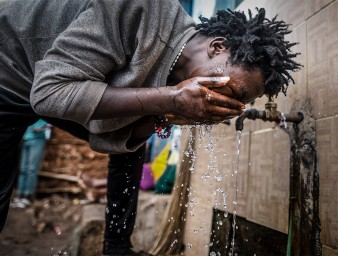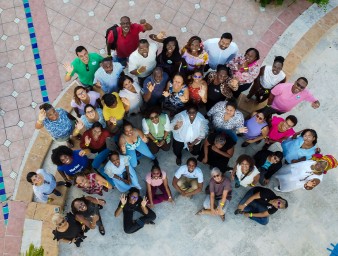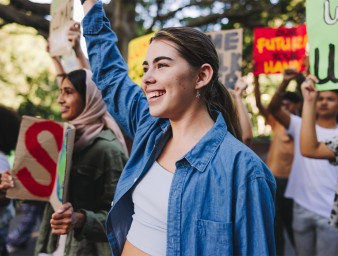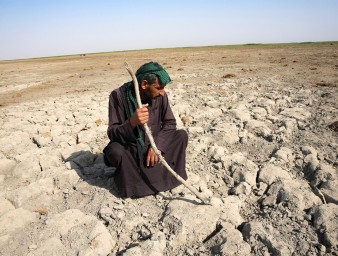“We can’t just sit down and wait for the world to bend”
27 November 2023
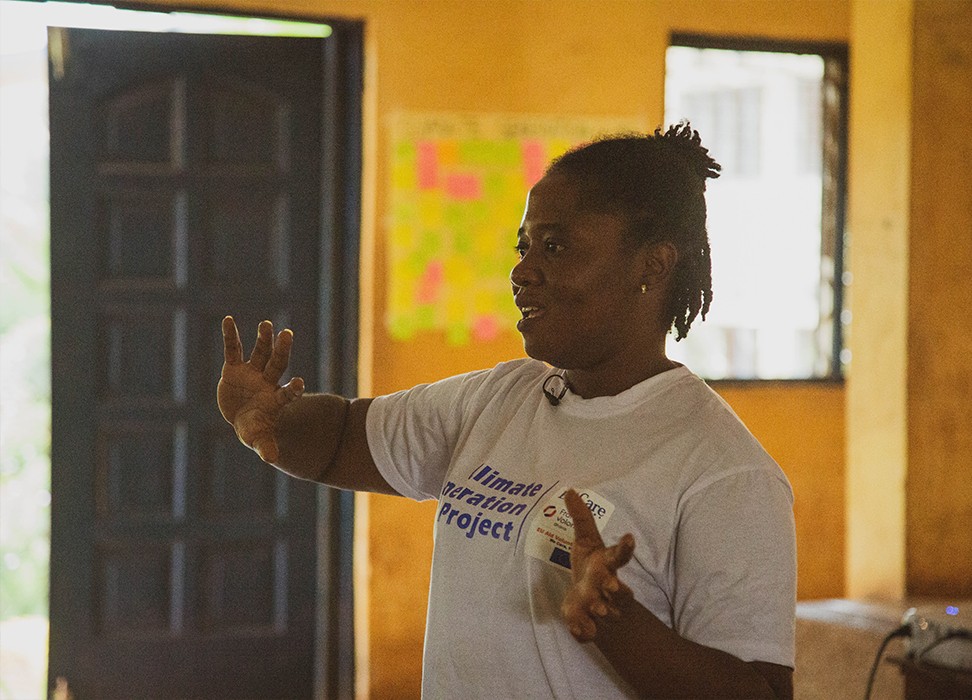
When climate activist Evelyn Adzovi Addor recalled her childhood in her rural village in Ghana, she became nostalgic for the rainy season when the land was filled with flowers and fruit.
“There were butterflies everywhere,” she said. “When I used to come home from school, I would pick the oranges off the trees. But everything has changed. You don’t see butterflies hovering over blossoming wild fruit trees. It makes me angry, and it was only ten years ago when I started to see a change.”
Addor has witnessed many communities in Ghana experience similar loss and damage due to climate change, where their once fertile land has become unproductive, bodies of water have dried to drought and loss of essential biodiversity.
Addor recently participated in a UN Human Rights Council panel discussion on young people’s engagement with climate change and global environmental decision-making processes during the 54th session of the Human Rights Council in Geneva, Switzerland. Addor is a Climate Negotiator for Ghana, a Communications Officer for EcoCare Ghana and a member of the Climate Youth Negotiators Programme.
“While the impacts of the triple planetary crisis of climate change, biodiversity loss and pollution are already being dramatically felt today, it is young people, and future generations, who will bear the brunt,” said UN Human Rights Chief Volker Türk during the panel event. “It is also young people who have stepped forward, with commitment and creativity, to demand immediate and ambitious action from governments and businesses in the face of this unprecedented crisis for the planet and for human rights.”
According to Addor, in Africa, young people between 15 and 24 years old are expected to grow to 830 million by 2050.
“The youth face increased risks to their health, including respiratory problems, malnutrition, infectious diseases and deaths,” she said. “Climate change impacts mental well-being, including anxiety fear and powerlessness. Additionally, climate change jeopardizes our future by undermining access to basic rights such as clean water, and a safe environment.”
“
It is crucial to recognize and address these impacts to protect the well-being and future of young people in Africa and across the world.
“
Evelyn Adzovi Addor, Climate Negotiator for Ghana
Addor pointed out that women, especially young women, are impacted by water scarcity and other climate change impacts, since young women tend to be the ones responsible for collecting water for domestic purposes.
“These negatively affect their education and continue to perpetuate gender inequality,” she said. “When climate disaster strikes, women, children and youth suffer the most.”
Youth participation in decision-making
This is why Addor stressed the importance of including young people meaningfully in the decision-making process and the significant advancement being made locally and internationally in the effort to bring young people to the table.
She credited the Climate Youth Negotiator Programme, the flagship initiative of the Youth Negotiators Academy — a programme she recently participated in that trains, connects, and empowers youth negotiators to participate meaningfully and effectively in the United Nations Framework Convention on Climate Change (UNFCCC) negotiations — for bringing together over 200 young people from almost 60 countries for diplomacy training and support. This global intergenerational programme is redressing the systemic inequality of youth representation in negotiations and decision-making processes by tackling the root causes, and driving systems change to ensure long-term meaningful youth leadership in multilateral negotiations.
“Seeing young negotiators in action has inspired enthusiasm for climate action among Ghana’s youth, and many young people are developing their capacity to serve, too,” she said.
While progress has been made, a clear roadblock for many young people that prevents meaningful participation is access to climate education, according to Addor.
“Most young people in developing countries especially lack basic education about climate change, its impacts, and solutions,” she said. “This knowledge gap prevents the adoption of climate adaptation and mitigation lifestyles.”
Another barrier is access to finance to support the development of innovative solutions among young people, she added.
She also said there is no time to waste.
“Climate change will impact you and not just in Africa,” she said. “It’s important for all of us to take action now, no matter how small it is. Don’t sit down and wait for the world to bend.”
